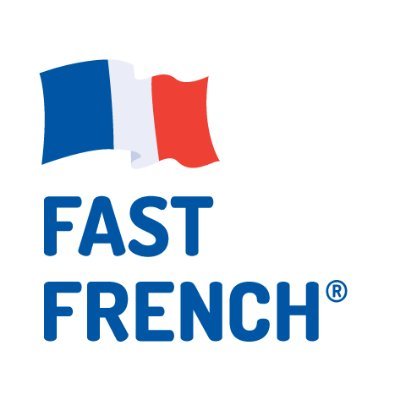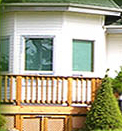
Fast French
@FastFrenchTutor
Fast French is the best French tutoring available in Australia. Learn online via Skype, or in person in Carlton North, Victoria. Get fluent fast!
You might like
Not all English idiomatic expressions have a direct French translation. It is a common mistake to translate an English expression directly into French. Read the full story here: fastfrench.com.au/sayings-and-ex…

It is a common mistake to try to translate idiomatic expressions from English into French, word for word. The example of the English phrase “the writing is on the wall” shows us that this approach is often not effective. Read the full story here: fastfrench.com.au/sayings-and-ex…

The English conjunction unless expresses a condition that prevents something from happening. It is typically translated using the conjunction à moins que, which requires the subjunctive mood. Read the full story here: fastfrench.com.au/conjunctions/u…

The French expression on dirait is widely used in spoken and written language. It comes from the verb dire (to say), conjugated in the conditional third person singular (on dirait = one would say / it would seem). Read the full story here: fastfrench.com.au/phrases/on-dir…

The English verb to mean has several possible translations, including vouloir dire and signifier. Other verbs like impliquer, représenter, entendre par, and consister à are possible. Read the full story here: fastfrench.com.au/verbs/to-mean/

The verb gagner is a regular -er verb in French. Its meanings include to win, to earn, to gain, or to save time or distance. Its conjugation follows standard -er patterns. Read the full story here: fastfrench.com.au/verbs/gagner/

The English verb to postpone can be translated into French in several ways: reporter, remettre, repousser, décaler, ajourner, and différer. Read the full story here: fastfrench.com.au/verbs/to-postp…

Argot is a form of informal, often colorful French slang used to express ideas in a more vivid, humorous, or coded way than standard French allows. Read the full story here: fastfrench.com.au/nouns/argot-wo…

The French phrase coûte que coûte literally means “cost what it may” or “whatever it costs.” It expresses determination to achieve something regardless of the cost, difficulty, or risk involved. Read the full story here: fastfrench.com.au/phrases/coute-…

In French history, « la Saint-Barthélemy » refers not to a feast day but to a massacre. On 24 August 1572, thousands of Protestants were killed in Paris and across France. Read the full story here: fastfrench.com.au/culture/la-sai…

The French expression « le nez de Cléopâtre » (“Cleopatra’s nose”) comes from a famous line by the 17th-century philosopher and mathematician Blaise Pascal. Read the full story here: fastfrench.com.au/sayings-and-ex…

“Loger” is a transitive verb meaning to accommodate, house, or provide lodging for someone or something. The subject provides housing to the object. Read the full story here: fastfrench.com.au/verbs/loger-vs…

Most French adverbs are formed by adding -ment to the feminine form of the adjective: lent → lentement, sérieux → sérieusement, heureux → heureusement. However, adjectives ending in -ent or -ant follow a different pattern. Read the full story here: fastfrench.com.au/adverbs/adverb…

The French adjectives froid (cold) and chaud (hot, warm) can be combined with the verbs être, avoir, or faire. Using the wrong verb can result in sentences that sound strange, confusing, or unintentionally suggestive. Read the full story here: fastfrench.com.au/adjectives/fro…

The English word “belief” can refer to religious faith, personal conviction, an opinion, or the acceptance that something is true. The correct French translation depends heavily on the specific context. Read the full story here: fastfrench.com.au/nouns/belief/

In English, looking forward to expresses anticipation or excitement about a future event. Common strategies include using the verb avoir hâte de, phrases with être impatient de, or more formal constructions with se réjouir de. Read the full story here: fastfrench.com.au/phrases/lookin…

Asking questions in French can be done in several ways, ranging from very formal to very informal. The choice of structure depends on the context, the level of formality, and the degree of emphasis or clarity desired. Read the full story here: fastfrench.com.au/phrases/questi…

The French adjective nouveau (new) and its variations (nouvelle, nouvel, nouveaux, nouvelles) can appear either before or after the noun. The position changes the meaning. Read the full story here: fastfrench.com.au/adjectives/nou…

The English word “however” can have different meanings depending on context. French uses several different words and phrases to cover these meanings. Read the full story here: fastfrench.com.au/adverbs/howeve…

Some French verbs require the preposition à before their object, whether that object is a noun or an infinitive. Learning these verbs as fixed expressions is necessary because the preposition is not optional. Read the full story here: fastfrench.com.au/verbs/verbs-wi…

United States Trends
- 1. Daboll 36.7K posts
- 2. Pond 238K posts
- 3. Schoen 18.9K posts
- 4. Schoen 18.9K posts
- 5. Veterans Day 21.6K posts
- 6. Giants 72.7K posts
- 7. Go Birds 11.6K posts
- 8. Joe Burrow 5,732 posts
- 9. Dart 23.5K posts
- 10. Joe Dirt N/A
- 11. Zendaya 8,344 posts
- 12. Kim Davis 12.9K posts
- 13. #ROBOGIVE 1,092 posts
- 14. Marines 62.1K posts
- 15. #jimromeonx N/A
- 16. Hanoi Jane 1,031 posts
- 17. Johnny Carson N/A
- 18. Marte 3,674 posts
- 19. Jeffries 41.3K posts
- 20. Semper Fi 11.9K posts
Something went wrong.
Something went wrong.






































































































